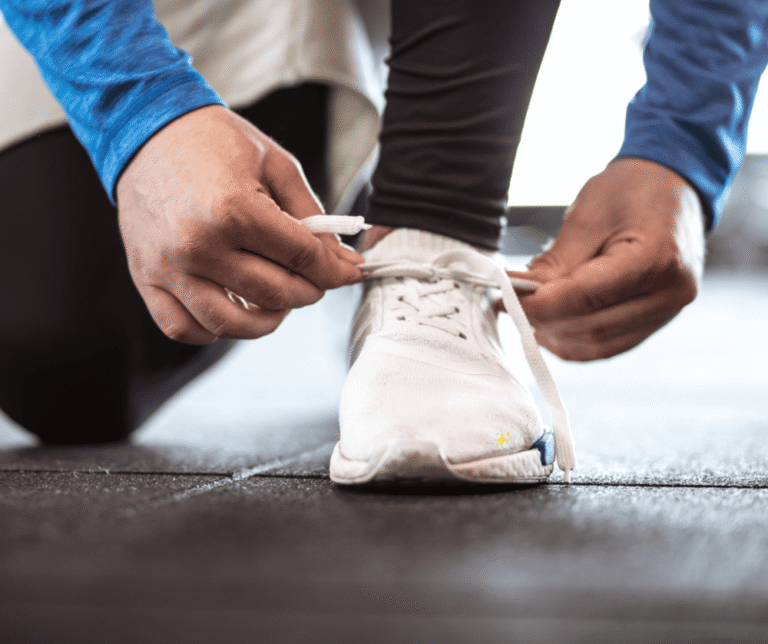Exercise is more than just a way to shed pounds or build muscle—it’s a fundamental part of a healthy lifestyle that affects your body, mind, and overall well-being. Regular physical activity is essential for maintaining optimal health, reducing the risk of chronic diseases, and improving your mental clarity and emotional stability. Despite the many benefits of exercise, it’s something that many people struggle to prioritize in their busy lives. But the good news is that incorporating movement into your daily routine doesn’t have to be complicated. Whether you prefer a vigorous workout or a gentle walk, making exercise a habit can significantly improve your quality of life.
The Physical Benefits of Exercise
One of the most obvious benefits of exercise is its positive impact on physicalhealth. Here are some key reasons why staying active is crucial:
1. Boosts Cardiovascular Health
Exercise strengthens the heart, improving circulation and lowering blood pressure. Cardiovascular exercise, such as walking, running, or cycling, helps to reduce the risk of heart disease and stroke by improving the efficiency of your heart and lungs.
2. Builds and Maintains Muscle Mass
Regularstrengthtraining exercises help to build muscle, which is vital as we age. Muscles not only contribute to your overall strength but also boost metabolism, making it easier to maintain a healthy weight.
3. Enhances Flexibility and Joint Health
Stretching and yoga can increase flexibility and mobility, reducing the risk of injuries and improving posture. Regular movement helps to keep the joints healthy and can alleviate symptoms of conditions like arthritis.
4. Supports Weight Management
Exercise helps you burn calories, which, when combined with a balanced diet, is key for maintaining a healthy weight. Physical activity increases your metabolism, even after you’ve finished working out, leading to more efficient calorie burning.
5. Improves Sleep Quality
Regular physical activity can improve the quality of your sleep. People who exercise tend to fall asleep faster, sleep more deeply, and wake up feeling more rested.
The Mental and Emotional Benefits of Exercise
Exercise is not just for the body—it has profound effects on the mind as well. Here’s how:
1. Reduces Stress and Anxiety
Physical activity promotes the release of endorphins, the body’s natural mood elevators. Exercise also helps to regulate the stress hormone cortisol, leading to a greater sense of calm and relaxation.
2. Boosts Mental Clarity and Focus
When you engage in regular physical activity, your brain receives more oxygen and nutrients, which enhances cognitive function. Exercise has been linked to improved memory, creativity, and focus, making it easier to stay sharp throughout the day.
3. Fights Depression
Exercise can be as effective as therapy or medication for some people in managing symptoms of depression. Physical activity increases the production of neurotransmitters like serotonin and dopamine, which are key in mood regulation.
4. Improves Self-Esteem
Engaging in exercise improves self-image and confidence. As you progress in your fitness journey and see positive changes in your body, you begin to feel better about yourself, which can enhance your overall sense of self-worth.
How to Get Started with Exercise
Starting a new fitness routine can feel intimidating, but the key is to take small steps and gradually build up. Here are a few tips to help you get started:
1. Set Realistic Goals
It’s easy to get discouraged if you set goals that are too ambitious. Start with small, attainable goals and gradually challenge yourself as you progress. Whether it’s walking for 20 minutes a day or lifting a specific weight, celebrate your victories along the way.
2. Find Activities You Enjoy
Exercise doesn’t have to be a chore. Whether you enjoy dancing, swimming, hiking, or cycling, find something you love to do. The more fun your workouts are, the more likely you are to stick with them.
3. Mix It Up
Doing the same exercise every day can become boring. Try mixing things up by incorporating a variety of activities, such as strength training, cardio, flexibility exercises, and recreational sports. This will keep your routine interesting and ensure that you’re working different muscle groups.
4. Start Slow
If you haven’t exercised in a while, start slow and gradually increase the intensity and duration of your workouts. Overdoing it in the beginning can lead to burnout or injury, so ease into it and listen to your body.
5. Stay Consistent
Consistency is key when it comes to seeing results. Aim to make exercise a regular part of your routine, whether it’s daily or a few times a week. Even on days when you’re feeling low-energy, try to do something active—whether it’s a short walk or some gentle stretching.
Conclusion
Exercise is an essential part of living a long and healthy life. It not only improves physical health but also boosts mental well-being, enhances mood, and reduces stress. By incorporating regular movement into your daily routine, you can unlock a wealth of benefits for both your body and mind. Remember, the best form of exercise is the one you enjoy, so find what works for you and stick with it. The journey to better health begins with just one step, and every little bit counts. So get moving today for a better tomorrow!
#ExerciseForHealth
#GetMoving
#FitnessJourney
#MoveYourBody
#HealthyLiving
#VibesChanger
#BuzzCreatorsDigitalMedia


1 Comment
Pingback: Unlock Your Best Self: The Power of Movement - Vibes